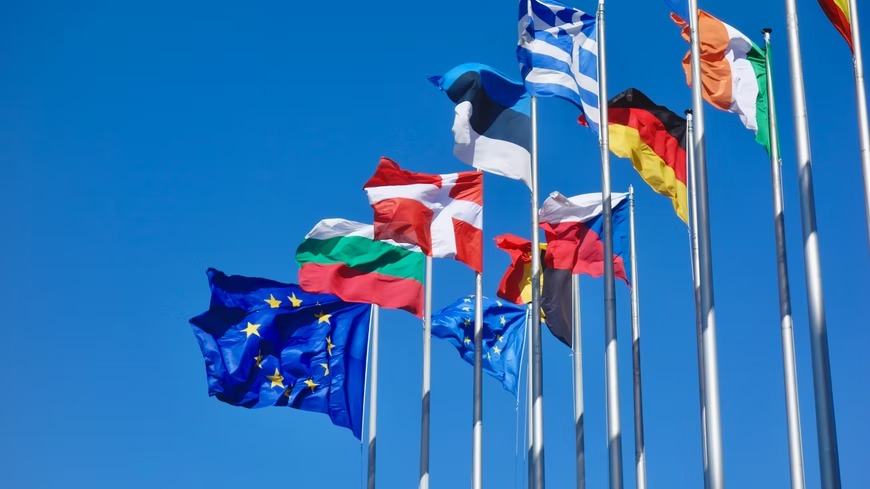The rules-based international order is in crisis. This is demonstrated by the increasingly assertive — and sometimes reckless — behavior of the illiberal powers. Russia has launched a full-scale invasion of Ukraine, and China’s Communists are determined to secure territories “lost” in a series of 19th century Unequal Treaties.
What should we do? The answer is to construct a loose coalition of democratic states supporting the liberal world order. This non-treaty coalition should offer a principled parity amongst adherents and needs to be connected economically, socially, and strategically.
The democratic world is perhaps unaware of its own strength. But consider the facts: China, the world’s second largest economy, and an active opponent to the legitimacy of the current order, has a trade volume 10 times larger with liberal democracies than with like-minded illiberal states such as Russia, North Korea, and Iran. China prizes internal stability, therefore it will have to exert ever-increasing pressure upon its sphere of influence to secure a net inflow of resources. Significant friction would result between the liberal and illiberal orders.
To be effective, this loose coalition would have to span the globe. There must therefore be an understanding that democracy comes in different flavors, and that some democracies are more competitive and representative than others. The early days of the global coalition should not become a purity spiral designed to find the “best” representative states.
Such an effort would also need to acknowledge that geography presents different security and economic realities among democratic states. For instance, in Europe, most countries are democracies bound together economically, politically, and defensively by the European Union (EU) and the North Atlantic Treaty Organization. Democracy and geographic co-location has led to a high degree of cohesion and institutionalization of security and economic policy.
The Indo-Pacific is dispersed. Indo-Pacific nation-states have varying degrees of democratic governance. Some lack democracy altogether, but have a liberal economic tradition. As a result, security policy tends to be transactional vis-à-vis the United States.
Africa, Central and South America, sources of commodities and raw materials, must also be incorporated into this coalition on equal standing with European and Indo-Pacific concerns; therefore, the arrangement should be informal so that all countries can find the flexibility to increase their net worth in the economic and political value chain. It is worth recalling that even cohesive political entities such as the EU, underpinned by the 1957 Treaty of Rome and the 1992 Maastricht Treaty, have within them structural inequities and inflexibilities which favor Northern over Southern Europe.
The roots of this new and informal alliance can be traced to the desk of a US diplomat sitting at his desk during a bleak Moscow winter of early 1946 and considering his response to a Treasury Department cable asking why the Soviet Union refused to join the International Monetary Fund and the World Bank.
After reflection, Deputy Chief of Mission, George F. Kennan, a career diplomat, sent a telegram back to Washington describing the need for a Western sphere of influence to counter the Soviet’s newly acquired illiberal sphere in Eastern Europe, which if left unchecked in the near term placed Iran and Greece in serious jeopardy. If the trend continued, there would have been a geographic firewall between East and West, liberal and illiberal, spanning the icy wastes of the Arctic, the Carpathians and ultimately threatening the relatively newly discovered Persian Gulf oil fields. The contemporary interconnectedness we have become used to and benefitted from today would either not have existed or taken a different and less vibrant form.
Kennan’s cornerstone was the ability of two opposing world orders to coexist, one capitalist and one authoritarian. Today, we grapple with an evolved version of these issues — whether a capitalist and democratic order can exist alongside a capitalist but authoritarian and exploitative order.
The conundrum cannot be fixed by the solutions offered in the 1940s by the Atlantic Charter and the United Nations. Both were noble and enduring attempts but many of the peoples subject to those were not intended to benefit from self-determination and economic liberalization. Eventually, the liberal order evolved to make more people benefit from the core principles due to decolonization, the spread and practice of democracy to something closer to its true meaning, and increases in living standards.
As we awaken from the global commodities and supply chain shocks induced by COVID-19 and the Ukraine War, the impetus to onshore and bring supply chains closer to home should also incorporate a willingness to improve the socio-economic wellbeing of Africa and South America, so as to beget a more localized synergy. This could be comparable to the global prosperity which flowered after World War II, while simultaneously building these countries’ resilience to the friction that will arise as the antagonists to the world order, Russia and China, seek to compensate for the losses they will suffer as a result of their revisionism.
Frank Okata is a graduate of the US Naval Academy and a career Surface Warfare Officer in the US Navy with ship and task force command experience. The views presented are those of the author and do not necessarily represent the policy or position of the Department of Defense or its components.




